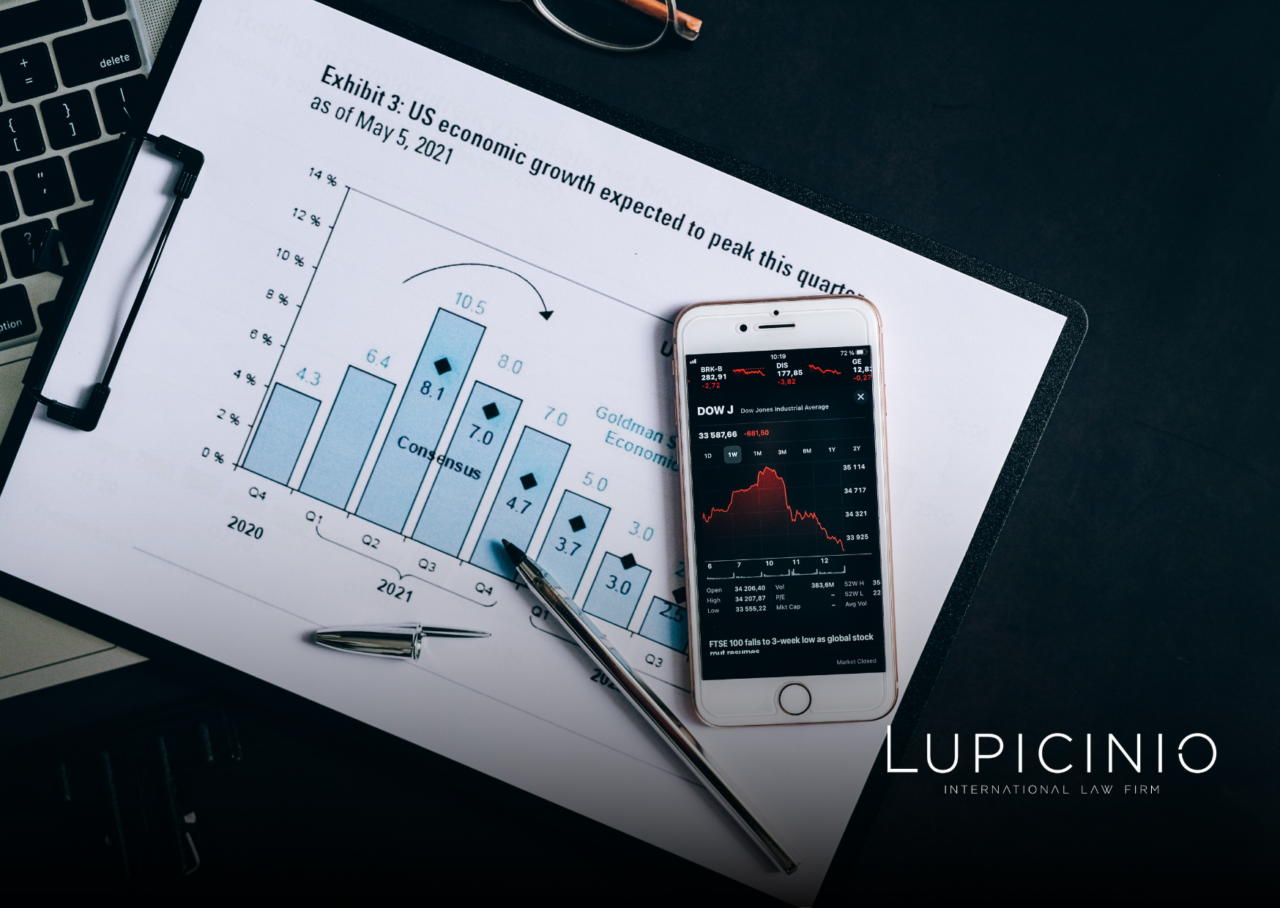National industry or sector: Milei dusts off the eternal debate on Argentine development (02 December 2024)
The Spanish media reports that the Argentine president, Javier Milei, has reopened the debate on the country’s economic development model by questioning state support for national industry and emphasising the role of the agro-export sector. According to him, for decades agricultural resources have been used to subsidise an industry that he considers dependent on the state. As part of his policies, he has reduced taxes on imported industrial products and promoted a free trade approach. Its stance has generated responses from the industrial sector, which defends the need for a diversified model that includes both agricultural and manufacturing production. The debate over whether Argentina should prioritise its vocation for agricultural exports or strengthen its industry continues to be a central issue in the country’s economic discussions.
The African free trade area takes its first steps (3 December 2024)
On 21 March 2018, Africa launched the African Continental Free Trade Area (AfCFTA), with the aim of creating the world’s largest common market, encompassing 1.3 billion people. To date, 54 of the 55 African countries have signed the agreement, with the exception of Eritrea. Recently, a dozen nations, including Egypt, Nigeria and South Africa, have initiated the first tariff-free commercial transactions under this framework. The aim is to increase intra-African trade from the current 16% to 38% by 2030, reduce poverty by 30 million people and raise continental GDP by 7% by 2035, fostering industrialisation. However, significant challenges remain, such as political fragmentation, mistrust between states, lack of adequate infrastructure and monetary diversity. To address this last point, the African Union has implemented the Pan-African Payment and Settlement System (PAPSS), designed to facilitate commercial transactions without the need for foreign intermediaries.
Colombia takes over the pro tempore presidency of the Pacific Alliance and begins the road to economic reactivation (11 December 2024)
On 13 December 2024, Colombia took over the Pro Tempore Presidency of the Pacific Alliance from Chile. During its term of office, the country has proposed to promote the integration of Costa Rica as a full member of the bloc, to encourage the participation of micro, small and medium-sized enterprises in the regional economy, and to promote productive transformation, digitalisation and the green economy. It also seeks to strengthen the economic empowerment of women through initiatives for inclusion within the Alliance. Another of the strategic axes will be the implementation of the roadmap for the Regional Digital Market, with the aim of improving connectivity and facilitating the exchange of digital goods and services, thus promoting growth and employment.
In the field of international relations, Colombia will work on the process for Singapore to become the first Associate State of the Pacific Alliance. It will also organise the 13th Tourism Macro-Roundtable with the aim of promoting the tourism sector in the region. Although the Pro Tempore Presidency was formally assumed in December 2024, Colombia will exercise its functions operationally from 1 March 2025.
Merchandise trade continues to rise in the third quarter of 2024 (13 December 2024)
https://www.wto.org/spanish/news_s/news24_s/stat_13dec24_s.htm (Spanish)
On 13 December 2024, the World Trade Organisation (WTO) reported that the volume of world merchandise trade grew by 1.1% quarter-on-quarter and 3.3% year-on-year in the third quarter of 2024. This growth suggests that the expected increase of 2.7% in the volume of world merchandise trade for the whole of 2024 could be achieved, provided that quarter-on-quarter growth in the fourth quarter is at least 0.8%.
Country anger over the EU-Mercosur agreement reaches Madrid (16 December 2024)
On 16 December 2024, farmers and ranchers from the main agricultural organisations, Asaja and COAG, demonstrated in Madrid in front of the Ministry of Agriculture, Fisheries and Food. Their protest focused on the recent free trade agreement between the European Union and Mercosur, signed on 6 December, which provides for a progressive reduction of tariffs. The demonstrators expressed their concern about the possible massive influx of agricultural products at lower prices, questioning whether these will comply with EU food quality and safety standards. In addition, they called for measures to improve the profitability of their farms, address high production costs and guarantee prices that cover costs in the food chain.
Three key issues that will shape the economic future of Latin America in 2025 (3 January 2025)
https://www.bbc.com/mundo/articles/ckg84rmv37lo (Spanish)
The BBC article highlights three key factors that will influence the Latin American economy. According to the BBC, firstly, the decisions of global leaders such as Donald Trump and Xi Jinping will have a direct impact on trade and investment in the region. A possible return of protectionism in the US could affect exports, while tensions with China could open up opportunities for some Latin American countries. Secondly, economic growth will depend on the internal policies of each nation, especially in terms of fiscal stability, attracting investment and structural reforms.
Finally, the article highlights the importance of diversifying Latin American economies to reduce their dependence on raw materials and promote sectors such as digitalisation and the technology industry. Latin America faces an uncertain global context and will have to adapt with strategies that balance its integration with the economic powers and the strengthening of its internal development.
President-elect Donald Trump plans to impose ‘very severe tariffs’ on Canada and Mexico (7 January 2025)
According to this article, on 7 January President-elect Donald Trump said he plans to impose ‘very severe tariffs’ on Canada and Mexico, and that he will rename the Gulf of Mexico the Gulf of America. ‘Canada receives subsidies to the tune of about $200 billion a year, plus a lot of other things. In essence, they don’t have an army. They have a very small army. They depend on our army. That’s all well and good, but they have to pay for it,’ Trump said during a press conference at his Mar-a-Lago resort in Palm Beach, Florida.
IMF raises its growth forecast for Spain in 2025 by two-tenths of a percent to 2.3% (17 January 2025)
On 17 January 2025, the International Monetary Fund (IMF) revised upwards its forecast for economic growth in Spain in 2025, increasing it by two tenths to 2.3%. This update contrasts with the downward revisions for other European economies, such as Germany, France and Italy. The IMF also predicts that the United States will be the advanced economy with the highest growth in 2025, with a rate of 2.7%. Despite these positive prospects, the organisation warns of possible commercial risks associated with the new US administration under President Donald Trump.
European Union – Mercosur: sustainable progress (19th January 2025)
The article ‘European Union – Mercosur: sustainable progress’ analyses the recent agreement between the European Union (EU) and Mercosur, which seeks to create one of the largest free trade areas in the world, covering a market of more than 700 million people. This agreement, which took 25 years to negotiate, aims to progressively eliminate tariffs on 91% of European products exported to Mercosur, which could generate savings of approximately 4 billion euros per year for European companies.
In addition, the agreement includes binding commitments on sustainable development, with an emphasis on environmental protection and the fight against deforestation. However, according to this article, some European countries, such as France, have expressed reservations due to concerns about competition in the agricultural sector and compliance with environmental standards. The ratification process is still pending and will require the approval of the parliaments of the EU and Mercosur member countries.
More than 80% of world trade in goods is conducted under the most favoured nation principle (22 January 2025)
https://www.wto.org/spanish/blogs_s/data_blog_s/blog_dta_21jan25_s.htm (Spanish)
The report published by the World Trade Organisation (WTO) on 21 January 2025 highlights that more than 80% of world trade in goods is carried out under the principle of the ‘most favoured nation’ (MFN). This principle, fundamental to the multilateral trading system, establishes that any tariff or trade advantage granted by one member country to another must automatically be extended to all other WTO members, thus guaranteeing a level playing field in international trade.
The WTO analysis emphasises that, despite the increase in bilateral and regional trade agreements, the MFN principle continues to play a crucial role in the stability and predictability of global trade. Furthermore, the report highlights how this rule has contributed to avoiding discriminatory practices and to fostering a more open and competitive commercial environment. However, it is also pointed out that some economies have opted for protectionist measures that can affect the effectiveness of this principle, generating uncertainty in international commercial relations.
The study concludes that the application of MFN remains essential to maintain confidence in the multilateral trading system and to ensure that all countries, regardless of their economic size, can participate on an equal footing in international markets.
Members consider China’s request for a panel to examine electric vehicle measures applied in Türkiye (27 January 2025)
https://www.wto.org/spanish/news_s/news_s.htm? (Spanish)
On 22 January 2025, the European Union filed a complaint with the World Trade Organisation (WTO) against China’s patent licensing measures. The EU argues that Chinese policies unfairly restrict the intellectual property rights of European companies, which could have significant implications for international trade and patent protection.
Growth continues along disparate paths in a context of great political uncertainty. (January 2025)
In January 2025, the International Monetary Fund (IMF) published an update of the World Economic Outlook, projecting global growth of 3.3% for both 2025 and 2026, below the historical average of 3.7%. This projection remains almost unchanged from the October 2024 edition, as the upward revision in the United States offsets downward revisions in other major economies. Global inflation is expected to fall to 4.2% in 2025 and 3.5% in 2026, approaching targets more quickly in advanced economies than in emerging and developing economies. In the medium term, the risks are skewed towards adverse factors, while in the short term there are risks with divergent effects.
In the United States, improvements can be seen that could boost already strong growth, while in other countries the outlook is likely to deteriorate due to high political uncertainty. Policies affecting the disinflation process could disrupt the transition to a more flexible monetary policy, with implications for fiscal sustainability and financial stability. The IMF recommends that policies focus on balancing the trade-offs between inflation and real activity, rebuilding room for manoeuvre and improving the medium-term growth outlook through structural reforms and strengthening multilateral cooperation.
*******************************************
In Madrid, 31 January 2025
Trade and International Sanctions Department







